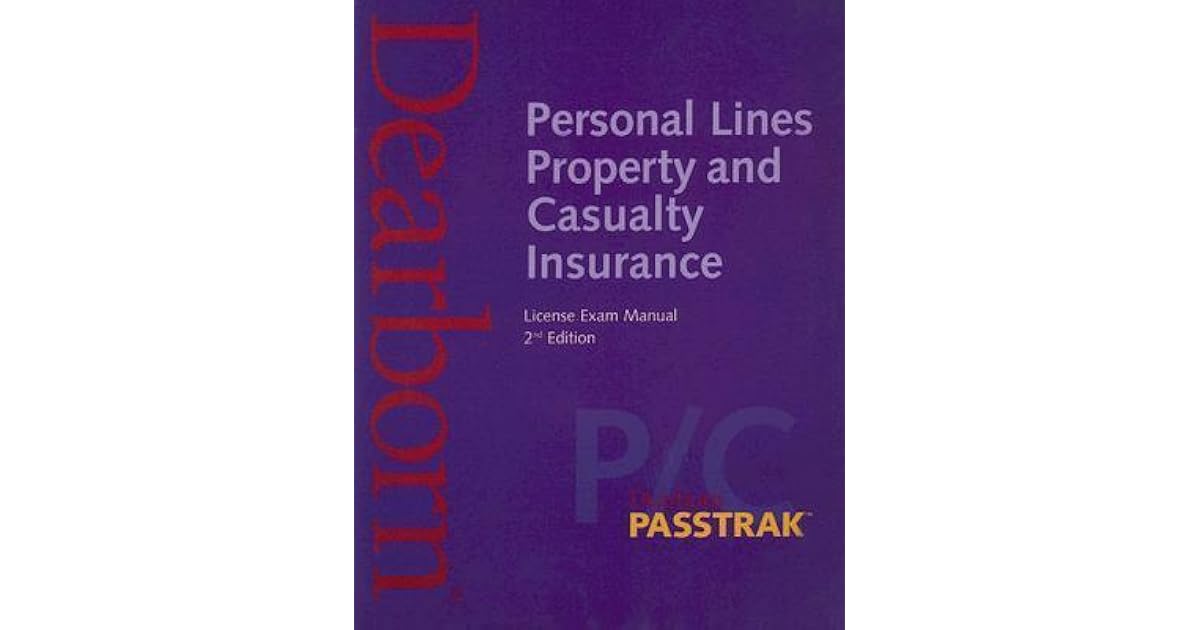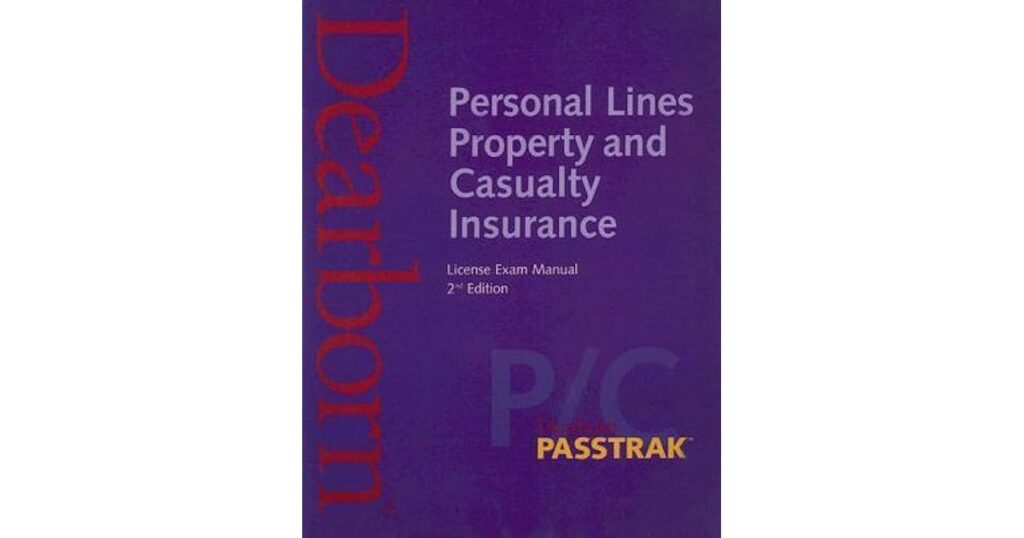Licensing Requirements
Aspiring insurance agents seeking to obtain a personal lines insurance license must fulfill specific eligibility criteria, complete a comprehensive curriculum of courses, and pass designated exams. Additionally, license holders are obligated to engage in ongoing continuing education to maintain their credentials.
Eligibility requirements typically include being at least 18 years of age, a legal resident of the state in which the license is sought, and possessing a high school diploma or equivalent qualification.
Required Courses and Exams
The educational component for obtaining a personal lines insurance license typically encompasses courses covering topics such as insurance fundamentals, property and casualty insurance, ethics, and state-specific regulations.
- Insurance Fundamentals: Introduces the basic concepts of insurance, including risk management, underwriting, and policy types.
- Property and Casualty Insurance: Focuses on specific coverage areas within personal lines insurance, such as homeowners, auto, and renters insurance.
- Ethics: Emphasizes ethical conduct and professional responsibilities in the insurance industry.
- State-Specific Regulations: Provides an in-depth understanding of the insurance laws and regulations applicable in the specific state where the license is sought.
Upon completing the required coursework, candidates must pass a licensing exam administered by a designated testing organization. The exam typically consists of multiple-choice questions covering the subject matter taught in the courses.
Continuing Education Requirements
To maintain an active personal lines insurance license, holders are required to complete a certain number of continuing education (CE) credits within a specified period, typically every two or three years. CE courses aim to update knowledge on industry developments, regulatory changes, and best practices.
Scope of Coverage
Personal lines insurance licenses cover a wide range of insurance products designed to protect individuals and their families from financial risks associated with their personal assets and activities.
These products provide coverage for various types of risks, including property damage, liability, and financial losses.
Types of Personal Insurance Products
- Homeowners Insurance: Protects homeowners against risks related to their homes, including damage caused by fire, theft, vandalism, and natural disasters.
- Renters Insurance: Covers renters for their personal belongings and liability within their rented space.
- Auto Insurance: Provides coverage for vehicles against accidents, theft, and other damages.
- Life Insurance: Offers financial protection for beneficiaries in the event of the policyholder’s death.
- Health Insurance: Covers medical expenses and provides financial assistance for individuals and families.
- Disability Insurance: Replaces lost income if an individual becomes disabled and unable to work.
Specific Risks and Coverages
Each personal lines insurance product offers specific coverages tailored to the risks associated with the insured property or activity.
- Homeowners Insurance: Covers the dwelling, personal belongings, and additional living expenses incurred due to covered losses.
- Renters Insurance: Provides coverage for personal belongings, liability for injuries or damages caused to the rented property, and additional living expenses.
- Auto Insurance: Offers liability coverage for bodily injury and property damage caused to others, as well as coverage for the insured vehicle and its occupants.
- Life Insurance: Provides a death benefit to beneficiaries, which can be used to cover expenses, pay off debts, or provide financial security.
- Health Insurance: Covers a range of medical expenses, including doctor visits, hospital stays, and prescription drugs.
- Disability Insurance: Replaces a portion of lost income if the insured individual is unable to work due to a covered disability.
Limitations and Exclusions
Personal lines insurance policies may have certain limitations and exclusions that limit the scope of coverage.
- Homeowners Insurance: May exclude coverage for certain types of losses, such as flood or earthquake damage.
- Renters Insurance: Typically does not cover damage to the rented property itself, as that is the landlord’s responsibility.
- Auto Insurance: May have exclusions for certain types of drivers or vehicles, or for damages caused by intentional acts.
- Life Insurance: May exclude coverage for deaths caused by certain high-risk activities or pre-existing conditions.
- Health Insurance: May have deductibles, co-pays, and other cost-sharing requirements, and may exclude coverage for certain types of treatments or procedures.
- Disability Insurance: May have a waiting period before benefits begin, and may limit coverage for certain types of disabilities.
Sales and Marketing

To achieve success in the personal lines insurance industry, mastering the art of sales and marketing is crucial. This involves employing effective sales techniques, fostering strong customer relationships, and adhering to ethical practices.
When engaging in sales conversations, it is essential to understand the specific needs and concerns of each customer. By actively listening, asking clarifying questions, and tailoring your approach accordingly, you can build rapport and establish yourself as a trusted advisor. Effective communication skills, both verbal and non-verbal, are paramount in conveying your expertise and building trust.
Effective Sales Techniques
- Needs Analysis: Conduct a thorough assessment of the customer’s insurance requirements, lifestyle, and risk tolerance to identify suitable coverage options.
- Product Knowledge: Possess a deep understanding of the insurance products you offer, their benefits, limitations, and how they align with the customer’s needs.
- Presentation Skills: Clearly and persuasively present the value proposition of your products, highlighting how they address the customer’s concerns and provide peace of mind.
- Objection Handling: Anticipate and effectively address customer objections by providing logical explanations, offering alternative solutions, or clarifying misconceptions.
- Closing Techniques: Guide the customer towards making an informed decision and secure their commitment to purchasing the insurance policy.
Building Strong Customer Relationships
In the personal lines insurance industry, fostering long-lasting customer relationships is essential for business growth and retention. By providing exceptional service, going the extra mile, and maintaining regular communication, you can build a loyal customer base.
- Personalized Service: Treat each customer as an individual, understanding their unique needs and providing tailored solutions.
- Proactive Communication: Regularly check in with customers to ensure their coverage remains adequate and to provide updates on industry trends or new products.
- Claims Assistance: Provide prompt and efficient support during the claims process, ensuring a smooth and stress-free experience for the customer.
- Feedback Collection: Regularly gather customer feedback to identify areas for improvement and enhance the overall customer experience.
Ethical Considerations and Best Practices
Maintaining ethical standards and adhering to best practices is paramount in personal lines insurance marketing. This includes providing accurate and transparent information, avoiding misleading or deceptive tactics, and respecting customer privacy.
- Truthful Advertising: Ensure that all marketing materials accurately represent the insurance products and their benefits, avoiding exaggerated or unsubstantiated claims.
- Privacy Protection: Comply with all applicable privacy regulations and protect customer data from unauthorized access or misuse.
- Fair Competition: Engage in fair and ethical competition, avoiding disparaging or misleading statements about competitors’ products or services.
- Professional Conduct: Maintain a high level of professionalism in all interactions with customers, colleagues, and industry partners.
Claims Handling
When an insured event occurs, the policyholder must notify the insurance company as soon as possible to initiate the claims process. The claims adjuster will then investigate the claim, assess the damages, and determine the amount of the settlement.
The claims adjuster will typically visit the policyholder’s property to inspect the damages and interview witnesses. They will also review the policyholder’s insurance policy to determine the coverage that applies to the claim.
Role of the Claims Adjuster
- Investigate the claim and determine the cause of the loss.
- Assess the damages and estimate the cost of repairs or replacement.
- Negotiate a settlement with the policyholder.
- Authorize payment of the claim.
Importance of Accurate Documentation
It is important for the policyholder to maintain accurate documentation of the damages. This documentation can include photographs, receipts, and estimates from contractors. The policyholder should also keep a record of all communications with the insurance company.
Effective Communication
The claims adjuster should communicate effectively with the policyholder throughout the claims process. The adjuster should keep the policyholder informed of the status of the claim and answer any questions that the policyholder may have.
Regulatory Compliance
The personal lines insurance industry operates within a strict regulatory framework designed to protect consumers and ensure the integrity of the market. This framework consists of a complex web of laws, regulations, and guidelines issued by various government agencies and industry organizations.
Key regulations include the Insurance Code, which governs the conduct of insurance companies, and the Unfair Trade Practices Act, which prohibits deceptive or misleading marketing practices. Compliance with these regulations is essential for insurance professionals to avoid legal penalties, fines, and reputational damage.
Ethical Conduct
Beyond legal compliance, ethical conduct is paramount in the personal lines insurance industry. Insurance professionals have a fiduciary duty to act in the best interests of their clients, providing them with sound advice and fair treatment. Ethical conduct also includes maintaining confidentiality, avoiding conflicts of interest, and adhering to industry standards of practice.






